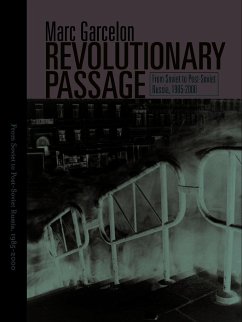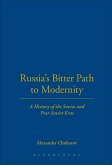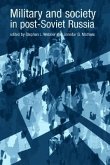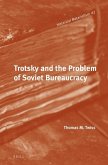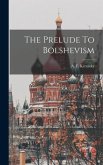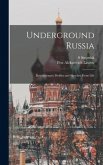Reconstructs the processes leading from Gorbachev's perestroika's reforms, to the rise of Putin's "soft authoritarianism," in ways that shed new light on processes of revolutionary change in recent Russian history
Revolutionary Passage is a cultural, social, and political history of Russia during fifteen crucial years. Garcelon traces this history from perestroika to the rise of Vladimir Putin, and argues that the pressures put on the soviet system by Gorbachev's reforms gave birth to movements for democratic reform, but that the political arrangements that gave rise to the fall of communism in fact killed hopes for reform; Garcelon shows that these arrangements have been part of Russian history from the czarist era through the communist and contemporary periods.
The heart of this book is a close examination of the DemRossiia movement, which Garcelon argues helped to dismantle the soviet system, but was also post-soviet Russia's first victim as the country realigned itself with external forces (like globalization and US-style economic reforms) and internal forces (such as traditional rigidities in Russian society and the subordination of movements to Boris Yeltsin's leadership).
"Garcelon makes an important contribution to the understanding of the role the educated middle class, intellectuals, and experts played during Gorbachev's reforms and how they were abandoned by Yeltsin. The book offers a fine-tuned presentation of the social structure of late Soviet Union and the early month of post-Soviet Russia." Ivan Szelenyi
Content:
Introduction: Passages; One: The Specialist Rebellion in Moscow and the Genesis of a Revolutionary Situation; Two: The Rise of Democratic Russia; Three: Democrats on the Offensive; Four: August 1991 and the Decline of Russia's Democratic Movement; Five: Interregnum
Revolutionary Passage is a cultural, social, and political history of Russia during fifteen crucial years. Garcelon traces this history from perestroika to the rise of Vladimir Putin, and argues that the pressures put on the soviet system by Gorbachev's reforms gave birth to movements for democratic reform, but that the political arrangements that gave rise to the fall of communism in fact killed hopes for reform; Garcelon shows that these arrangements have been part of Russian history from the czarist era through the communist and contemporary periods.
The heart of this book is a close examination of the DemRossiia movement, which Garcelon argues helped to dismantle the soviet system, but was also post-soviet Russia's first victim as the country realigned itself with external forces (like globalization and US-style economic reforms) and internal forces (such as traditional rigidities in Russian society and the subordination of movements to Boris Yeltsin's leadership).
"Garcelon makes an important contribution to the understanding of the role the educated middle class, intellectuals, and experts played during Gorbachev's reforms and how they were abandoned by Yeltsin. The book offers a fine-tuned presentation of the social structure of late Soviet Union and the early month of post-Soviet Russia." Ivan Szelenyi
Content:
Introduction: Passages; One: The Specialist Rebellion in Moscow and the Genesis of a Revolutionary Situation; Two: The Rise of Democratic Russia; Three: Democrats on the Offensive; Four: August 1991 and the Decline of Russia's Democratic Movement; Five: Interregnum

